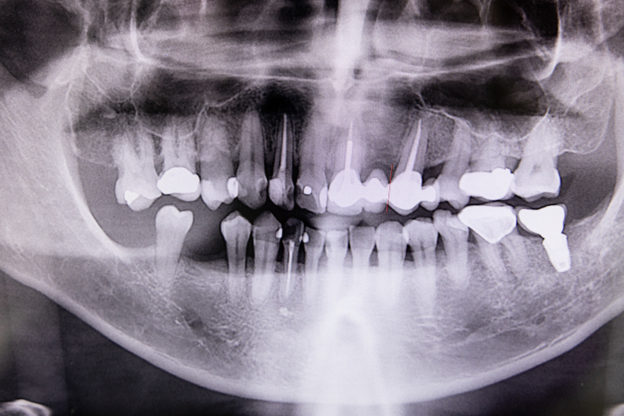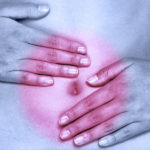By David Blyweiss, M.D., Advanced Natural Wellness
December 18, 2020
When you start to feel sick, I’ll bet you don’t think about your mouth as the cause of the problem. Well, for one of my friends, that’s exactly what she discovered…
After a routine dental procedure, she began to feel more and more sick. And the sickness wasn’t just in her mouth. She felt ill throughout her entire body.
Nothing she tried helped her feel better. That’s when her doctor finally asked about her recent root canal.
Ideally, a root canal should be completely sterile. But in her case, bad bacteria from her mouth was able to weasel its way into the root and start growing deep down in her gums.
And this was making her really, really sick…
Now, you read my thoughts about the gut microbiome before. I’ve explained that your stomach and intestines have both good and bad microbes that influence your health.
MD Exposes the Hidden Danger to Your Eyes

When your eyesight starts to fail, it's a real problem. Suddenly you can't go to the grocery store... you can't get to the doctor if you have an emergency... you can't meet your friends for dinner…
Your "regular" doctor doesn't have time to keep up with the latest research. And the same goes for eye doctors. They go to school to learn how to fit you for glasses and contacts, but have no way of preventing the damage and loss of eyesight that threatens your freedom and independence.
Let me show you something that explains a LOT about how your eyes work.
In my FREE Special Report, I'll show you a HUGE, untapped resource for your eyes that safely and naturally restores clear, effortless eyesight.
Click here to get started...
You can feed the “good” bacteria and help them thrive by eating lots of vegetables and fruits in all the colors of the rainbow. Or, you can let your “bad” bacteria take over by feeding them an unhealthy diet high in sugar and processed foods.
The health of your gut microbiome can have a profound effect on your overall health.
Your Mouth Has Its Own Microbiome as Well!
In fact, it’s like a little jungle inside your body — one where little microbes love to thrive.
Wedged among your teeth, throat, tongue, cheeks, palates, and tonsils are colonies of bacteria. Over 600 species have been identified in your mouth alone. [1]
Just like with your gut microbiome, the bacteria living in your mouth have evolved along with humans over millions of years. Microbes like viruses, fungi, and protozoa also live in your mouth. And just like with the gut, these little microbes can have health effects far behind your smile.
Luckily, you have some control over the health of your oral microbiome. Aspects of your lifestyle — things like diet, tobacco use, and stress — can affect your oral microbiome and allow disease to take hold.[2]
Your dental hygiene also plays a large role.
The World's Quickest Solution for Ending Prostate and Urinary Misery
This has recently been revealed to be one of the only real breakthroughs in prostate health.
The seeds of a strange fruit (sometimes called "Chinese Apples") hold powerful phytonutrients that are a revolution in prostate health.
In fact, UCLA and Veterans Administration research have now proved this to be true.
Not only that, but it may be the worlds quickest solution for ending prostate misery.
Simply stated, these phytonutrients represent a huge step beyond beta sitosterol, saw palmetto, and other phytosterols alone.
Simply click HERE if you want to have fast prostate relief...restful, uninterrupted sleep...no more constant "urges to go"...enhanced virility...and optimal prostate support for life.
When left unchecked, bad bacteria are responsible for things like tooth decay and gum disease.[3] This in turn puts people at risk for problems like tumors, diabetes, cardiovascular disease, blood infections, and birthing problems.[4] They are also responsible for problems like bad breath and oral cancer.[5]
I tell you all of this for a very important reason…
If you want to understand your general health and how to prevent disease, you need to know what’s going on in your oral microbiome — inside your mouth!
You should take care of your oral microbiome so that you can keep your entire body healthy.
Personally, I clean my mouth at least twice a day. I use silver droplets under my tongue to kill bacteria. And while I do have root canals from years ago, I would think twice about getting another one.
I’m not a dentist, but I’d recommend the same to you. If your dentist is recommending a root canal, make sure you’ve considered all of the other options.
Because when microbes are able to invade the space around a root canal, infection can follow. This is not something to take likely. These infections can cause some serious problems for your overall health. In fact, nearly 7,000 people in the US end up in the hospital each year.[6]
Luckily, my friend never ended up in the hospital.
Instead, she had her root canals removed and everything cleaned up. Then, she got remarkably better within a period of one week. It turns out, the bacteria infecting her root canal were seeding her body with infection all over.
She went from really, really sick to healthy just by removing the main source of infection … her root canal.
What’s the moral of this disturbing story? Keep your mouth clean!
Sources:
[1] Dewhirst, Floyd E., et al. “The human oral microbiome.” Journal of bacteriology 192.19 (2010): 5002-5017.
[2] Kilian, Mogens, et al. “The oral microbiome–an update for oral healthcare professionals.” British dental journal 221.10 (2016): 657-666.
[3] Wade, William G. “The oral microbiome in health and disease.” Pharmacological research 69.1 (2013): 137-143.
[4] He, Jinzhi, et al. “The oral microbiome diversity and its relation to human diseases.” Folia microbiologica 60.1 (2015): 69-80.
[5] Takahashi, N. “Oral microbiome metabolism: from “who are they?” to “what are they doing?”.” Journal of dental research 94.12 (2015): 1628-1637.
[6] Shah AC, Leong KK, Lee MK, Allareddy V. Outcomes of hospitalizations attributed to periapical abscess from 2000 to 2008: a longitudinal trend analysis. J Endod 2013; 39:1104-10; PMID:23953280; http://dx.doi.org/10.1016/j.joen.2013.04.042







